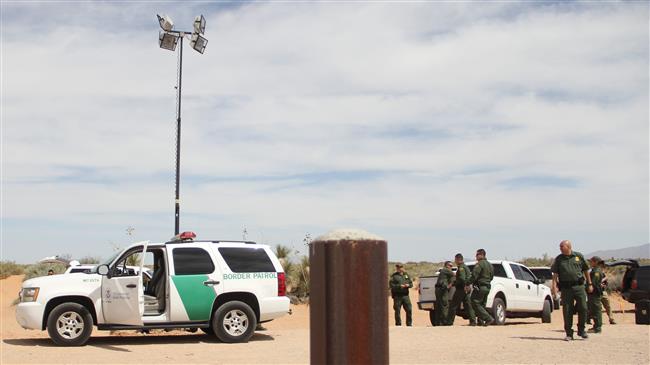Caravan refugees remain stranded as US says border crossing full
Hundreds of refugees, including women and children, traveling in a caravan to seek asylum in the United States remain stuck at the US-Mexico border after a difficult, month-long journey from Central America.
The caravan, consisting of refugees from countries like Honduras and El Salvador, set off in southern Mexico on March 25 and has been stopped at the American border. The refugees say they are fleeing deadly gang violence in their home countries and seek to enter the US legally.
US border officials, however, have told those stranded that the Mexico-US border crossing near San Diego is already full.
“We have reached capacity at the San Ysidro port of entry,” said Customs and Border Patrol (CBP) Commissioner Kevin McAleenan in a statement on Sunday, adding that the asylum seekers “may need to wait in Mexico.”
President Donald Trump has repeatedly denounced the caravan, describing it as a threat to US safety. He has used the group to argue in his tweets that immigration laws need to be tightened.
The refugees decided to camp out overnight on Sunday near the San Ysidro border inspection facility, which can reportedly hold about 300 people.
Local media say the asylum seekers do not appear to be discouraged by the delay, with an organizer of the caravan vowing to remain outside an immigration processing center until “every last one” is admitted into the US.
“We’ve been waiting so long that it doesn’t really matter whether it’s today, tomorrow or when they let us in," said Irineo Mujica, director of Pueblo Sin Fronteras, the campaign group that organized the caravan.
One of the asylum seekers, Wendi Yaneri Garcia, 36, who was traveling with her sick two-year-old son, said that police in her hometown of Atlantida, Honduras, jailed her for protesting the construction of a hydroelectric plant and that she received death threats after being released.
“All I want is a place where I can work and raise my son,” she said.
Elin Orrellana, a 23-year-old pregnant woman from El Salvador, also said she was fleeing following her sister’s death after being targeted by the notorious MS-13 street gang.
Legal advisers were dumbfounded by the CBP’s decision to deny entry to the group.
“They have been well aware that a caravan is going to arrive at the border,” Nicole Ramos, an attorney working on behalf of caravan members, said at a news conference.
“The failure to prepare and failure to get sufficient agents and resources is not the fault of the most vulnerable among us. We can build a base in Iraq in under a week. We can’t process 200 refugees. I don’t believe it.”
It was not immediately clear whether the group would be turned back or allowed in later.
Russia threatens to deploy navy to protect vessels from ‘Western piracy’
Iranian Navy chief: Extra-regional fleets in West Asia 'unjustified'
'Die alone or with your family': Lebanese man killed after Israeli call
Iran, Russia to hold joint naval drill in Sea of Oman, Indian Ocean
Macron: French citizens fighting for Israel cannot be 'genociders'
VIDEO | Press TV's news headlines
UN experts say Epstein files reveal crimes against humanity
Iran, Russia sign cooperation document, four MOUs on trade, energy














 This makes it easy to access the Press TV website
This makes it easy to access the Press TV website